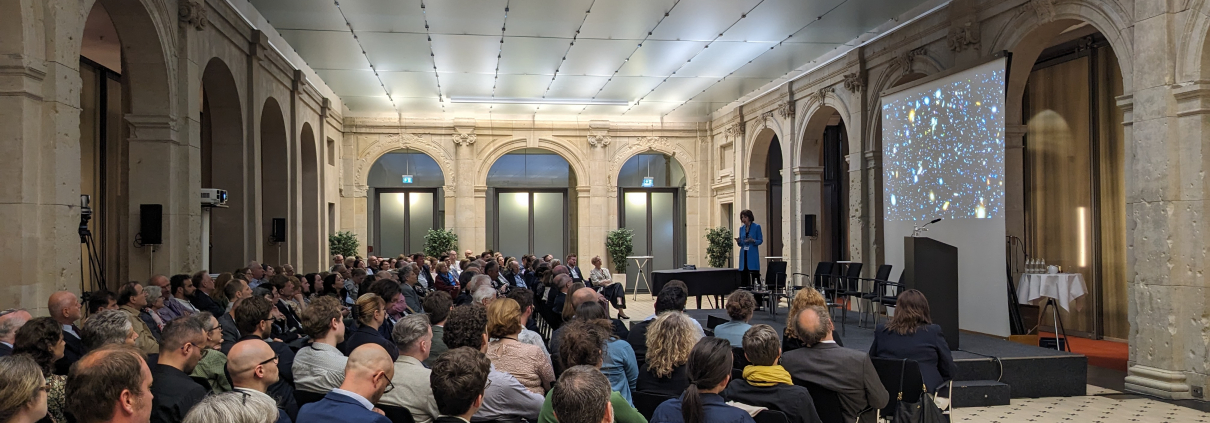Academic Symposium Highlights Path Forward for European Research Collaboration
Yesterday, leading academics and policy experts from across Europe came together to discuss the critical role of international research collaboration in today’s rapidly changing geopolitical environment. ALLEA had invited them to Berlin for a public symposium on ‘European Research Collaboration in a Shifting Geopolitical Landscape’.
As a part of ALLEA’s 30th-anniversary celebrations and their annual general assembly, this event took place at the Berlin-Brandenburg Academy of Sciences and Humanities. It was co-hosted by the German National Academy of Sciences Leopoldina, the Union of the German Academies of Sciences and Humanities, and the Junge Akademie.
The Value of Open Research Collaboration
Fabiola Gianotti, Director-General of CERN, the European Organization for Nuclear Research, and world-leading physicist, received ALLEA’s Madame de Staël Prize for her distinguished contributions to European values and science collaboration. In her keynote address, Dr Gianotti gave an inspirational talk about her experiences in CERN and the discovery of the Higgs boson. As the leader of Europe’s most significant collaborative research project and one of the world’s most influential scientists, Dr Gianotti stressed that scientific cooperation, open science and data are essential means of boosting science and reducing global inequities. She depicted CERN as a laboratory for people around the world and as a model for global collaboration that not only drives innovation, but also creates and maintains a value system that promotes peace and prosperity in a world facing significant geopolitical shifts.
Limits to Openness
The symposium featured engaging discussions with a panel of international experts and leaders in academia and policy, including Katja Becker (German Research Foundation – DFG), Nienke Buisman (European Commission), Janneke Gerards (Utrecht University), Fabiola Gianotti (CERN), and Valeska Huber (University of Vienna).
The panel addressed the role of research collaboration and its limits amid geopolitical complexities by asking: “How open can we be?”. It was stressed that the autonomy and freedom of research and researchers are indispensable, but that the times dominated by a romantic illusion of openly sharing data and ideas with everyone without any risk are over.
An emphasis was also put on the fact that international scientific cooperation needs to be both open and safe, and that the goal should be to build capacity at various levels in European research systems. The main objective for policies governing research collaboration and research security should be providing researchers and research institutions with the necessary means to make informed decisions on the ‘red lines’ before entering international collaborations.
Responsible Internationalisation
To conclude, the discussions underscored the necessity of strengthening international partnerships, for instance through international academy networks such as ALLEA. The symposium explored practical solutions to overcome barriers to such collaboration, emphasising the importance of maintaining high standards of academic freedom, integrity, and responsibility, creating a safe research environment, enabling an open debate, supporting the international mobility of researchers, and ultimately reducing polarisation and conflict within and between our societies.
For more information and documentation about the symposium, please visit the ALLEA General Assembly website: https://www.alleageneralassembly.org/scientific-symposium-2024-allea-general-assembly/


